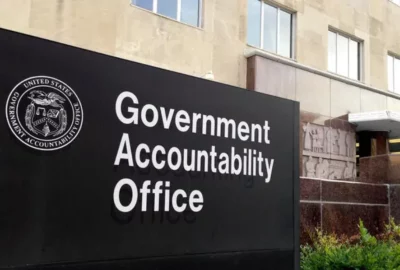Reverse auctions, in which contractors underbid one another in a controlled environment, have waxed and waned over the years. Now with agencies worried about budgets, reverse auctions are popping up all over.
“The way the government’s reverse auctions work is a vendor, a company, sort of runs them for the government,” said Robert Levinson, a defense analyst at Bloomberg Government, who has been looking into reverse auctions, in particular at the Pentagon.
“It’s an online thing where the government puts out various work or goods that it wants to purchase and it allows companies then to bid on these,” Levinson told The Federal Drive with Tom Temin and Emily Kopp Wednesday. He was speaking about an article he wrote on the subject for BGov.com, Reverse Auctions Gain as Agencies Seek Price Cuts: BGOV Insight.
“Unlike a normal auction, where the prices bid up, these companies bid down,” Levinson said. “In other words, the effort is so the government gets the lowest possible price for whatever good or service it’s purchasing. The companies compete back and forth to get a low price and the government would select the winner with the lowest bid to purchase whatever good or service it wants to purchase.”
The government — or the Pentagon in particular — is not going to use this process to purchase something as complicated as a fighter jet or an aircraft carrier.
“But for those goods or services, particularly those that are readily available in the commercial market, things like pencils or grass cutting or things that are simple services that don’t require a lot of specified requirements and there’s a lot of commercial vendors out there that can provide them, those are the kinds of things that the Pentagon and other government agencies are looking at,” he said.
As budgets become tighter, Levinson said that he’s seeing more agencies taking advantage of reverse auctions. “The government is getting more and more excited about these things,” he said. “In fact, the Senate Armed Services Committee in their report that accompanies the 2013 defense authorization bill specifically called them out and encouraged the Pentagon to use them more and more.”
Levinson said studies have found that the government is saving significant amounts of money by using reverse auctions and there is a potential to save even more.
The downside of reverse auctions
Although reverse auctions appear to be a win-win for the federal government, their use has garnered some criticism.
“As you might expect, contractors are not very enthusiastic about these things,” Levinson said. “It creates downward pressure on their prices and, therefore, can lower their profits.”
In addition, some companies have claimed that government set-asides, such as those for minority-owned small businesses or veteran-owned small businesses, disappear or are diminished in reverse auctions. Contractors who would normally benefit from set-asides would lose that advantage because they would be competing at the same level as all other contractors.
“There has been some criticism from various contractor trade associations and things about this push to move to reverse auctions,” Levinson said.
In March, the Department of Veterans Affairs briefly suspended its use of reverse auctions over concerns about oversight in the reverse auction process. “There was some criticism that too much responsibility was being delegated to the third party that runs these things rather than it being controlled by the government,” Levinson said.
VA lifted the moratorium in April after narrowing the scope of what agency staff could use reverse auctions for and making changes to ensure that a more robust oversight existed within the agency.
“They did clarify that policy to address some of the concerns raised by contractors about oversight and maybe the auctions being used for a wider variety of services than was appropriate,” Levinson said.
Robert Levinson is an analyst for Bloomberg Government. The views expressed are his own. Read his article Reverse Auctions Gain as Agencies Seek Price Cuts: BGOV Insight at BGov.com.
(BGov.com is a paid site and requires a subscription for access.)
To contact the analyst: Robert Levinson in Washington at rlevinson5@bloomberg.net.
To contact the editor responsible: Anne Laurent at alaurent7@bloomberg.net.
Copyright
© 2024 Federal News Network. All rights reserved. This website is not intended for users located within the European Economic Area.





